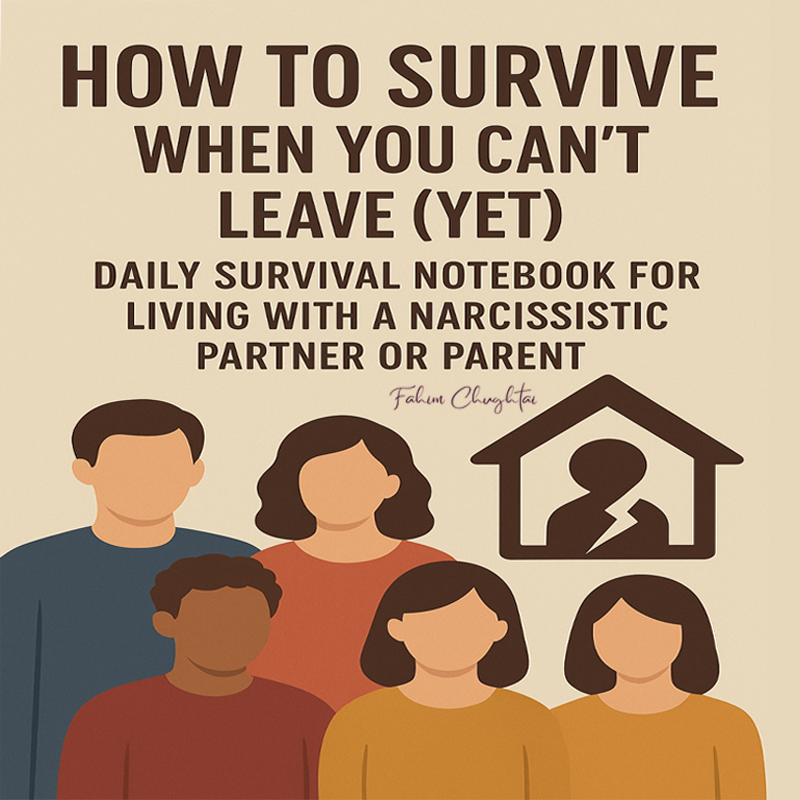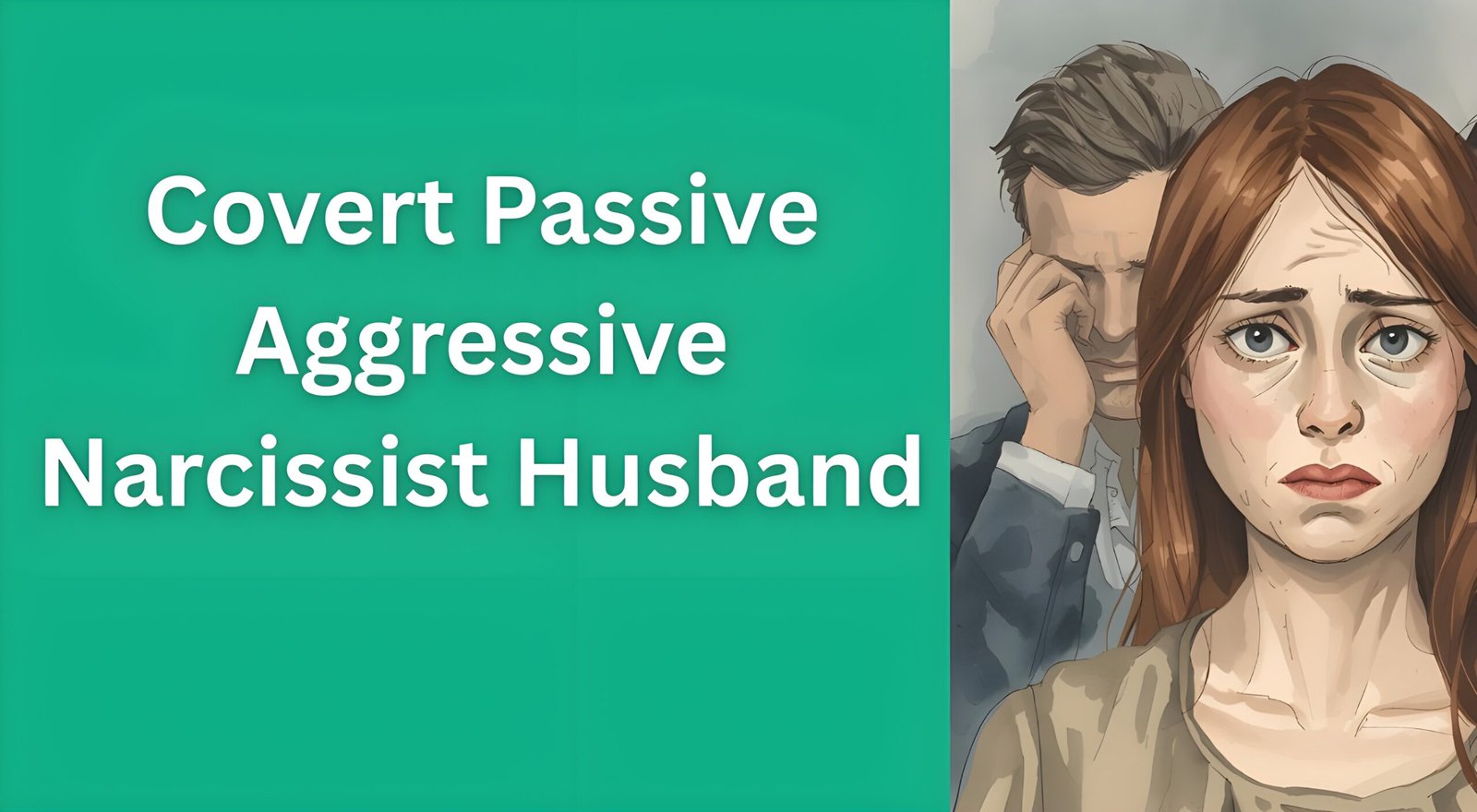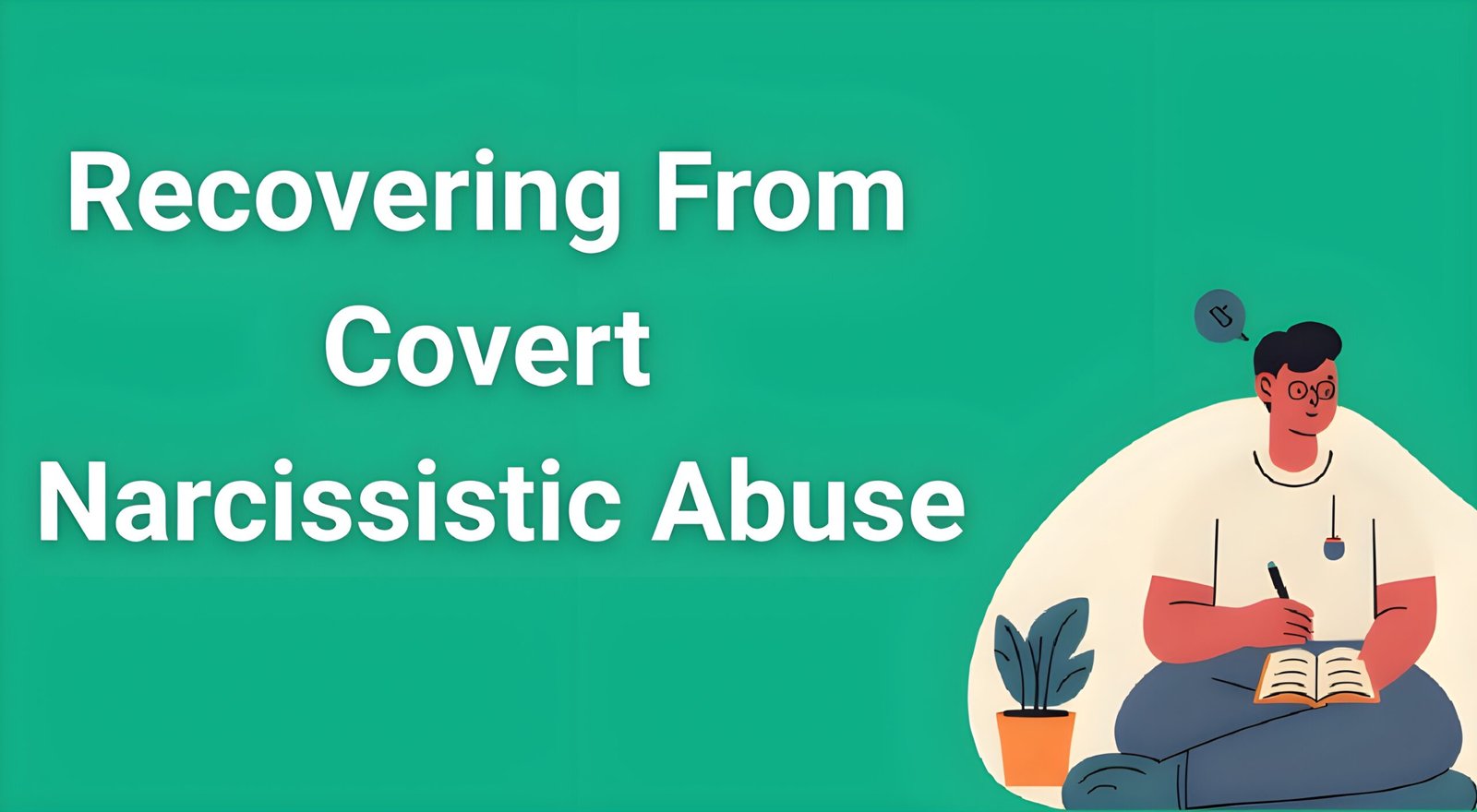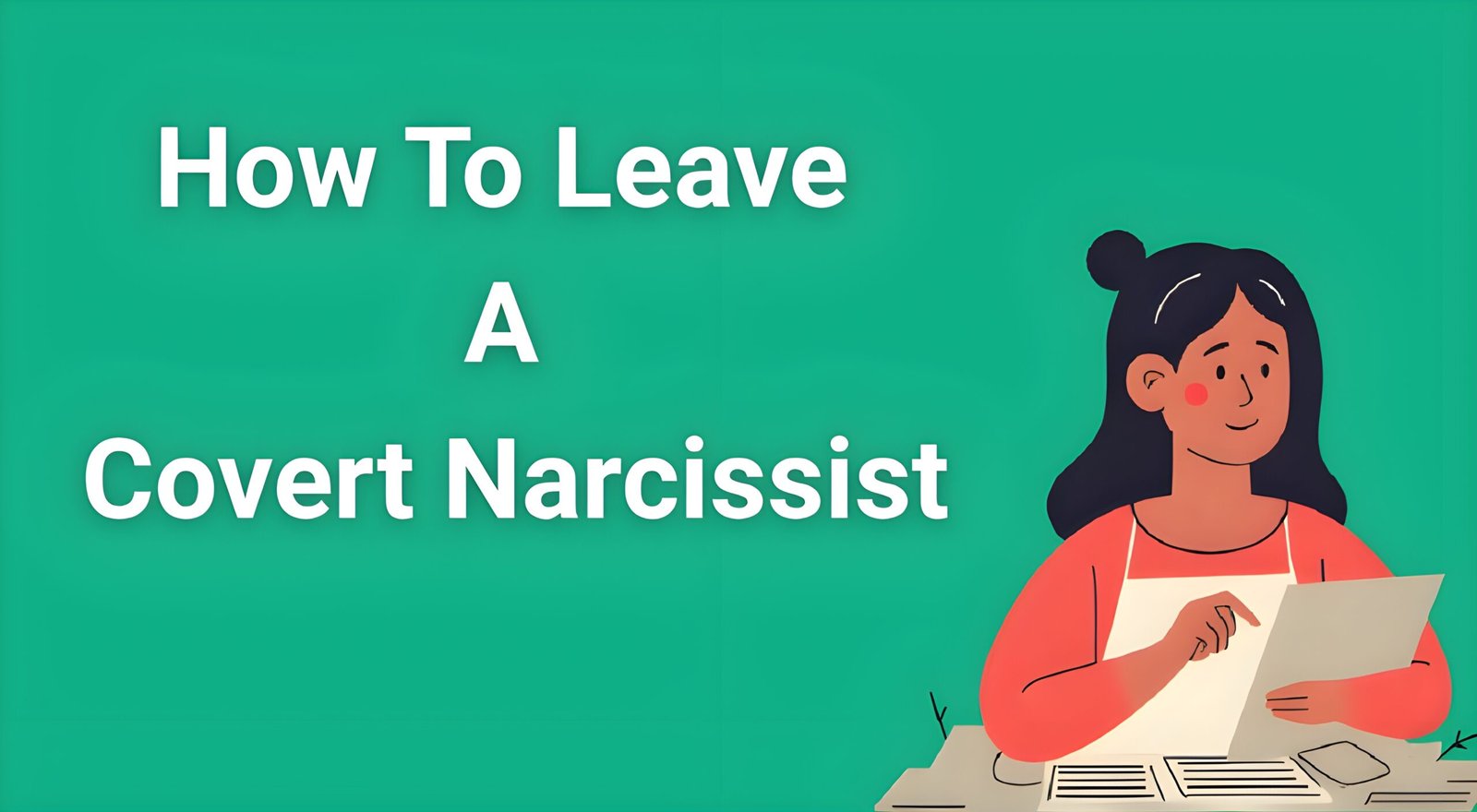Have you ever felt completely drained after spending time with a woman who seems sweet and caring on the surface, yet something feels terribly wrong? You’re not losing your mind. You might be dealing with something far more insidious than obvious aggression—you could be encountering the 7 signs of a female covert narcissist, a master manipulator who operates in shadows while appearing innocent to the outside world.
Unlike their loud, attention-seeking male counterparts, female covert narcissists are psychological predators who’ve perfected the art of manipulation through subtlety. They destroy relationships, crush self-esteem, and create trauma bonds so powerful that victims often can’t understand why they feel trapped. The damage they cause is real, lasting, and often goes completely unrecognized by others.
What Makes Female Covert Narcissists Different from Overt Narcissists?
Understanding the distinction between overt and covert narcissism is crucial, especially when it manifests in women. Society has conditioned us to expect certain behaviors from women—nurturing, empathetic, self-sacrificing—which creates the perfect camouflage for covert narcissistic abuse.
Overt narcissists are easy to spot. They’re loud, demanding, grandiose, and openly superior. Everyone can see their toxic behavior coming from miles away.
Am I Dealing With a Covert Narcissist — or Just Toxic Behavior?
Covert narcissists, particularly women, operate differently. They’ve learned to weaponize vulnerability, victimhood, and societal expectations about femininity. They appear humble, helpful, even self-deprecating—until you realize these traits are calculated tools for control.
Female covert narcissists are especially dangerous because they understand emotional manipulation at a level that can take years to detect. They exploit the very traits we’re taught to value in women: emotional expression, caregiving, and sensitivity.
The 7 Deadly Signs of a Female Covert Narcissist
1. She’s a Professional Victim Who Never Takes Responsibility
The female covert narcissist has perfected victim mentality as an art form. No matter what happens, she’s always the innocent party suffering at the hands of others. When confronted about her behavior, she immediately flips the script to make you the aggressor.
How this manifests:
- Constantly talks about how others have wronged her
- Uses phrases like “I can’t believe you would do this to me”
- Brings up past hurts whenever she’s criticized
- Makes you feel guilty for having legitimate concerns
- Never genuinely apologizes—only gives fake apologies that blame you
Real-world example: Sarah’s mother always played the victim whenever Sarah tried to set boundaries. When Sarah asked her not to criticize her parenting, her mother responded with, “I can’t believe my own daughter thinks I’m such a terrible person. After everything I’ve sacrificed for you, this is how you treat me?” Sarah ended up apologizing for bringing it up.
This victim stance serves multiple purposes: it deflects accountability, generates sympathy from others, and keeps you feeling guilty for “hurting” someone who appears fragile and innocent.
2. She Uses Passive-Aggressive Punishment to Control Your Behavior
Female covert narcissists rarely confront you directly. Instead, they punish you through subtle withdrawal, silent treatment, or indirect aggression that leaves you questioning whether you’re imagining things.
Warning signs include:
- Giving you the cold shoulder without explanation
- Making snide comments disguised as jokes
- “Forgetting” important things that matter to you
- Sabotaging plans or special occasions
- Using guilt trips instead of direct communication
Example in action: When Lisa forgot to invite her friend Emma to a work event, Emma didn’t say she was hurt. Instead, she became mysteriously unavailable for weeks, posted pictures of fun activities without Lisa, and when questioned, said “Oh, I just thought you preferred your work friends now.”
This passive-aggressive punishment creates a trauma bond. You’ll find yourself walking on eggshells, constantly trying to figure out what you did wrong and how to make it right.
3. She Emotionally Manipulates Through Strategic Vulnerability
The female covert narcissist weaponizes emotional openness. She shares deeply personal information or appears vulnerable at precisely the right moments to manipulate your emotions and gain control.
Manipulation tactics include:
- Oversharing personal trauma to gain sympathy
- Crying or appearing fragile when confronted
- Using her struggles to excuse toxic behavior
- Making you feel special by “trusting” you with secrets
- Playing up mental health issues to avoid accountability
Case study: Maria would always bring up her anxiety whenever her boyfriend tried to discuss relationship problems. She’d start crying and saying, “My anxiety is so bad right now, I can’t handle conflict. You know how fragile I am.” He’d end up comforting her instead of addressing the issue.
This strategic vulnerability creates a powerful psychological trap. You feel like you’re the strong one helping someone fragile, but you’re actually being manipulated into accepting unacceptable behavior.
4. She’s Competitive and Envious, Especially with Other Women
Behind the sweet facade, the female covert narcissist harbors intense jealousy and competitiveness. She can’t genuinely celebrate others’ successes and often tries to diminish achievements or steal attention.
Red flags to watch for:
- Backhanded compliments that undermine your confidence
- One-upping your stories or achievements
- Sudden “emergencies” during your important moments
- Comparing herself to you constantly
- Spreading subtle negative comments about other women
Real scenario: When Jenny got promoted, her friend Kate said, “Congratulations! I’m so surprised they gave it to you—I know you’ve been struggling with confidence issues. It must feel amazing to finally succeed at something.”
This competitive nature often reveals itself most clearly in female friendships, where the covert narcissist systematically tears down other women while appearing supportive.
5. She Creates Drama While Appearing to Hate Conflict
Female covert narcissists are masters at creating chaos while positioning themselves as innocent bystanders. They stir up problems between people, then act shocked when drama ensues.
How she operates:
- Shares information that she “probably shouldn’t”
- Makes implications rather than direct accusations
- Asks loaded questions that plant seeds of doubt
- Acts as the concerned friend while spreading discord
- Claims to “hate drama” while consistently being at the center of it
Example: Rachel told Tom that his girlfriend “seemed really flirty” with another guy at the party. When Tom confronted his girlfriend and a fight erupted, Rachel comforted him saying, “I hate that I caused problems. I just thought you should know as your friend.”
This behavior serves the narcissist’s need for excitement and control while maintaining her innocent image.
6. She Violates Boundaries While Playing the Hurt Party
Boundary violations are a hallmark of covert narcissistic abuse, but female covert narcissists do it in ways that make you feel guilty for having boundaries in the first place.
Boundary violations include:
- Showing up uninvited then acting hurt if not welcomed
- Going through your personal belongings “out of concern”
- Sharing your private information with others
- Demanding access to your time, space, or resources
- Making you feel selfish for saying no
Typical response pattern: When you try to enforce boundaries, she responds with hurt feelings rather than respect. “I can’t believe you don’t trust me enough to…” or “I was only trying to help because I care about you.”
The female covert narcissist uses societal expectations about women being caring and involved to justify boundary violations, making you question whether your boundaries are reasonable.
7. She Uses Love-Bombing and Intermittent Reinforcement to Create Addiction
The most dangerous aspect of female covert narcissism is how they create psychological addiction through unpredictable cycles of affection and withdrawal.
The cycle works like this:
- Love-bombing phase: Excessive attention, compliments, and seeming devotion
- Devaluation phase: Subtle criticism, withdrawal, and emotional coldness
- Discard phase: Complete emotional unavailability or punishment
- Hoovering phase: Sudden return with explanations and promises
The psychological trap: This intermittent reinforcement schedule is the same mechanism that makes gambling addictive. Your brain becomes wired to chase the “high” of her approval and affection.
Example cycle: Sophie would shower her friend with attention and compliments for weeks, then suddenly become cold and critical. When her friend tried to address it, Sophie would withdraw completely. Just when her friend was ready to end the friendship, Sophie would return with a heartfelt apology and explanation, making her friend feel guilty for doubting her.
This creates a trauma bond stronger than healthy love because your nervous system becomes addicted to the relief you feel when she returns to being “nice.”
What to Do If You Recognize These Signs
Recognizing these patterns is the first step toward freedom, but breaking free from a female covert narcissist requires specific strategies and often professional support.
Immediate Steps for Protection
Document the behavior: Keep a journal of incidents. Covert abuse is designed to make you question your reality, so written records become crucial for maintaining perspective.
Rebuild your support network: Female covert narcissists systematically isolate their victims. Reconnect with friends and family members you may have distanced yourself from.
Practice reality testing: When you feel confused or guilty, check your perceptions with trusted friends or professionals who understand narcissistic abuse.
Set and maintain firm boundaries: Expect massive pushback, guilt trips, and escalation when you start enforcing healthy boundaries. This reaction confirms you’re dealing with a narcissist.
Understanding Your Trauma Response
If you’ve been involved with a female covert narcissist, you’re likely experiencing trauma bonds that make leaving feel impossible. These bonds create neurological changes in your brain that can make you feel physically and emotionally dependent on your abuser.
Understanding that your attachment isn’t love—it’s a psychological addiction created by manipulation—is crucial for recovery. Many survivors find that working through trauma bond recovery helps them break free from the cycle of abuse and reclaim their sense of self.
Professional Support and Resources
Recovery from covert narcissistic abuse often requires specialized understanding of these unique trauma patterns. Traditional therapy approaches may not adequately address the specific psychological manipulation tactics used by covert narcissists.
Still Living With Them? You’re Not Helpless.

Consider seeking support from professionals who specialize in narcissistic abuse recovery and understand the complex trauma bonds these relationships create. The healing process involves not just leaving the relationship, but rewiring your brain and nervous system to break free from the addiction-like attachment.
For those who aren’t ready or able to leave their situation immediately, there are strategies for emotional survival and protection while you build the strength and resources needed for eventual freedom.
The Path to Freedom and Healing
Breaking free from a female covert narcissist is rarely a simple matter of just walking away. The psychological conditioning runs deep, and the trauma bonds can feel stronger than any healthy relationship you’ve ever experienced.
You’ve Seen the Patterns. Now Break the Bond.
Remember that healing is possible. Thousands of survivors have broken free from these toxic dynamics and rebuilt their lives. The process takes time, patience with yourself, and often professional guidance, but freedom from manipulation and emotional abuse is absolutely achievable.
Your sanity, peace of mind, and emotional well-being matter. Trust your instincts, document concerning behaviors, and don’t let anyone convince you that obvious red flags are normal relationship dynamics.
Frequently Asked Questions
Q: Can female covert narcissists change their behavior?
A: Genuine change in narcissistic personality patterns is extremely rare and requires intensive long-term therapy with specialists. Most experts agree that protecting yourself is more realistic than expecting change.
Q: How do I know if I’m overreacting to normal behavior?
A: Trust your nervous system. If you consistently feel anxious, drained, or confused after interactions with someone, your body is telling you something important. Healthy relationships don’t leave you questioning your reality.
Q: What’s the difference between someone having a bad day and covert narcissistic behavior?
A: Covert narcissistic behavior follows consistent patterns over time. Someone having a bad day will acknowledge their behavior and make amends. Covert narcissists consistently deflect, blame, and manipulate.
Q: Why do I feel addicted to this person despite the pain they cause?
A: This is a trauma bond, which creates neurological changes similar to addiction. The intermittent reinforcement schedule of kindness and cruelty literally rewires your brain to crave their approval.
Q: Can mothers be covert narcissists?
A: Yes, and this can be particularly damaging because children depend on their mothers for survival. Adult children of covert narcissistic mothers often struggle with people-pleasing, anxiety, and difficulty trusting their own perceptions.
Q: How long does recovery from covert narcissistic abuse take?
A: Recovery timelines vary greatly, but most survivors report significant improvement within 6-18 months of implementing proper boundaries and healing strategies. Complete healing can take several years.
Conclusion
Understanding the 7 signs of a female covert narcissist can literally save your sanity and transform your life. These master manipulators operate in shadows, using societal expectations about women to mask their psychological abuse. They create trauma bonds that can feel more powerful than healthy love, leaving victims confused, drained, and questioning their own reality.
The professional victim stance, passive-aggressive punishment, strategic vulnerability, competitive jealousy, drama creation, boundary violations, and trauma bonding cycles are the hallmarks of female covert narcissistic abuse. Recognizing these patterns is your first step toward freedom.
Remember: you’re not imagining things, you’re not too sensitive, and you deserve relationships built on mutual respect rather than manipulation and control. Trust your instincts, document concerning behaviors, and don’t hesitate to seek professional support from specialists who understand the unique trauma patterns these relationships create.
Your healing journey starts with recognition. From there, with proper support and strategies, you can break free from the psychological chains and reclaim your authentic self. The confusion will lift, your energy will return, and you’ll remember who you were before someone tried to convince you that emotional abuse was love.






